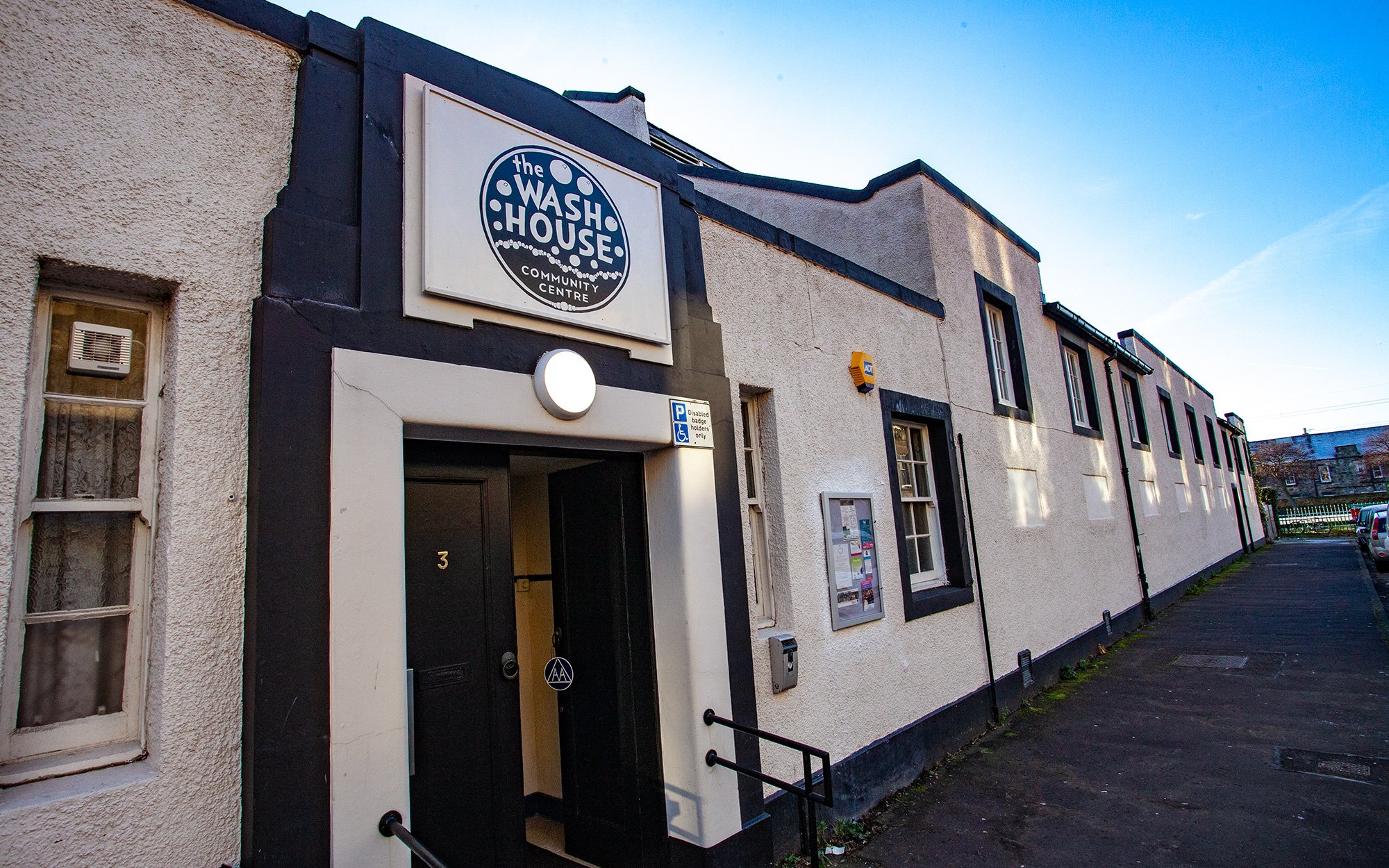
History of the building
A Timeline of the Wash House
-

1927 - 1977
The building was originally a public washhouse (a 'steamie'), used not only by the locals, but also by women from Musselburgh, Fisherrow, and other areas. With the advent of Launderettes and the increased availability of washing machines in the home, numbers using the facility declined.
-

1979
The Wash House is converted into Portobello’s Community Centre at a cost of £90K in a project that created 25 jobs.
-

1993
The disused boiler room and chimney were demolished in 1993, the conversion has retained the character of the building relatively intact.
-

Today
Today The Wash House is a busy and thriving community hub.
Today The Wash House hosts a wide variety of community groups with a diverse and ever-changing programme of events.
Life in the Steamie!
These days we spend a small fortune on fitness classes and gym memberships. But in granny’s day, all you needed to shape up, was a few regular trips to the ‘steamie’.
Shoving a pram full of clothes and sheets to the wash house would have been one way to get the heart pumping – even before the back-breaking task of trying to lift sodden sheets and towels from the hot tub of soapy water into the cold one for a rinse.
Then feeding endless pairs of your man’s newly scrubbed dungarees through a hand mangle would probably have done more for keeping the bingo wings at bay than any number of Zumba classes.
The work was sweat-inducing, with heavy loads of bedding and clothes being plunged into hot tubs, rubbed with hard soap and then cleaned with a ‘wash dolly’ before being fed through a hand mangle. Soaking items were then hung in the drying area – often emerging within an hour, bone dry.
The women who passed endless hours scrubbing and wringing, folding and hanging up also had the added benefit of the camaraderie of the wash house – a place where the banter could be as spicy as that of any male-dominated factory, the laughs just as raucous and the support network in times of need, vital. Incredible as it sounds, Edinburgh’s washhouses were still operating in the early 1980s, nearly a century after concerns over the city’s terrible infant death toll, cholera and disease led to public health pioneers pushing for their construction.





